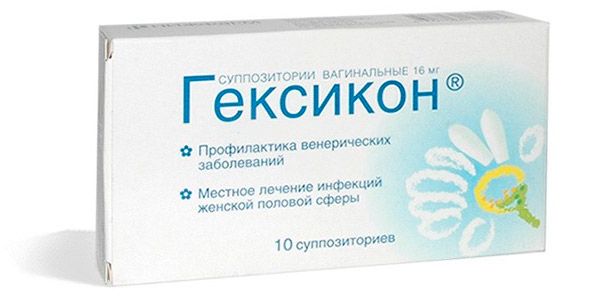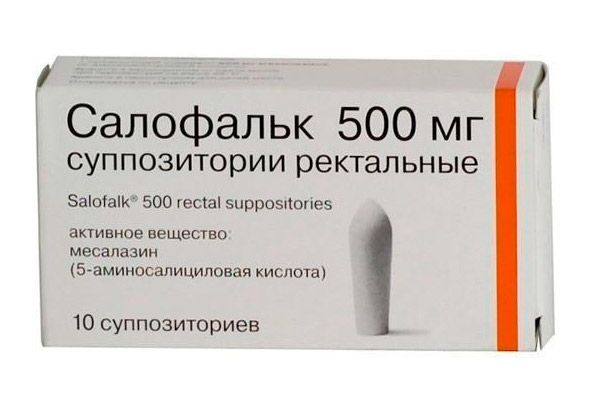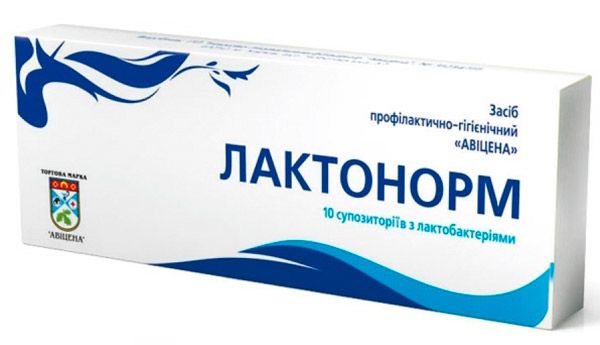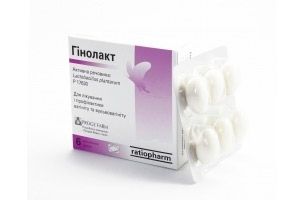Medical expert of the article
New publications
Preparations
Dysbacteriosis suppositories
Last reviewed: 04.07.2025

All iLive content is medically reviewed or fact checked to ensure as much factual accuracy as possible.
We have strict sourcing guidelines and only link to reputable media sites, academic research institutions and, whenever possible, medically peer reviewed studies. Note that the numbers in parentheses ([1], [2], etc.) are clickable links to these studies.
If you feel that any of our content is inaccurate, out-of-date, or otherwise questionable, please select it and press Ctrl + Enter.

Dysbacteriosis is a fairly common phenomenon in which the quantity, composition and ratio of beneficial and pathogenic bacteria change. Such a disorder can be observed not only inside the intestines, but also in the respiratory tract, on the skin and in the vagina in women. Of course, dysbacteriosis of the intestines or vagina is most often diagnosed. How to properly restore the balance of microflora? All kinds of suppositories for dysbacteriosis can help with this, which we will discuss below.
The quality and ratio of bacterial flora in the body largely depends on our immunity and lifestyle. Useful bacteria necessary for humans have a protective function and neutralize pathogenic microbes that try to penetrate their territory - the intestines or the vaginal environment. If there are relatively few useful bacteria, they cannot perform their function. As a result, pathogenic and opportunistic microbes multiply rapidly, which in this case do not bring any benefit to the body.
Despite the fact that pathological changes in the number of bacteria have been studied for several decades, the issue of dysbacteriosis is still on the agenda in many research institutes.
With the development of dysbacteriosis, some beneficial bacteria may disappear altogether (for example, lactic acid bacillus, bifidobacteria). Instead, the cavity is populated by representatives of fungal flora, staphylococci, protozoa, Pseudomonas aeruginosa, etc. This leads to the development of local inflammatory reactions, which, with simultaneously reduced immunity, can provoke a generalization of the process up to septic complications.
Dysbacteriosis can become a trigger for diseases such as digestive disorders, inflammation of the respiratory and genitourinary tracts.
Indications for the use of suppositories for dysbacteriosis
Usually, stabilization of the disturbed microflora is carried out sequentially:
- Eliminate most of the pathogenic flora.
- They populate the cavity with necessary and high-quality bacteria.
- Increase the body's defenses.
Suppositories for dysbacteriosis can be used at the first and second stages of treatment. This form of the drug allows for a local targeted effect without simultaneously having a negative effect on other organs and systems.
As a rule, treatment with suppositories for dysbacteriosis is carried out for at least ten days. Suppositories with lactobacilli can be used much longer - this depends on the doctor's prescription.
The first stage of treatment – destruction of pathogenic bacteria – is achieved by prescribing antimicrobial and anti-inflammatory suppositories, such as Salofalk or Terzhinan. The second stage involves the use of suppositories that populate the intestines or vagina with beneficial microflora. These may be Ginolact, Atsilakt, Bifidumbacterin, Laktonorm, etc.
The third stage is the appointment of multivitamin complexes, normalization of nutrition and lifestyle. All three stages in the complex allow you to defeat dysbacteriosis and forget about it for a long time.
Names of suppositories for dysbacteriosis
- Suppositories for vaginal dysbacteriosis:
Genferon
|
Hexicon
|
|
Pharmacodynamics and pharmacokinetics |
Genferon is an immunomodulatory and antiviral suppository that has a pronounced anti-inflammatory effect. The effect of the drug lasts up to 12 hours. |
Anti-inflammatory suppositories based on chlorhexidine. Used to prevent and treat inflammatory and infectious diseases of the genitourinary system. Do not have a negative effect on lactobacilli. |
Using suppositories for dysbacteriosis during pregnancy |
Not recommended. |
Allowed. |
Contraindications for use |
Hypersensitivity to the components of the candles. |
Excessive sensitivity. |
Side effects |
Allergies, headaches, sweating, fatigue, joint pain. |
Allergy. |
How to use suppositories for dysbacteriosis |
Use intravaginally, 1 suppository in the morning and at night, for 10 days. |
Use 1 candle in the morning and at night for a week. |
Overdose |
No messages received. |
Not observed. |
Interactions with other drugs |
The simultaneous use of antibiotics, tocopherol and ascorbic acid enhances the effect of the drug. |
Concomitant use with iodine preparations is not recommended. |
Storage conditions |
Store at temperatures up to +8°C. |
Store under normal conditions, out of reach of children. |
Best before date |
Up to 2 years. |
Up to 2 years. |
- Suppositories for intestinal dysbacteriosis:
Salofalk
|
Candles with propolis
|
|
Pharmacodynamics and pharmacokinetics |
Anti-inflammatory suppositories. The active component is released in the rectum and colon. |
Candles with propolis extract. Provide antiseptic, analgesic, anti-inflammatory, antipruritic and healing effects. |
Using suppositories for dysbacteriosis during pregnancy |
Only for strict indications. |
No studies have been conducted. |
Contraindications for use |
Severe liver and kidney disease, tendency to bleeding, children under 2 years of age, tendency to allergies. |
Hypersensitivity to bee products. |
Side effects |
Dyspepsia, headaches, sleep disorders, muscle and joint pain, changes in blood pressure. |
Allergy. |
How to use suppositories for dysbacteriosis |
Use 1 suppository intrarectally three times a day. |
Administer 1 suppository intrarectally, up to 2 times a day. |
Overdose |
Not observed. |
No description. |
Interactions with other drugs |
The drug enhances the effect of anticoagulants, sulfonylurea drugs, and also worsens the properties of rifampicin, sulfinpyrazone and diuretics. |
No interactions were observed. |
Storage conditions |
Store under normal conditions. |
Store in the refrigerator. |
Best before date |
Up to 3 years. |
Up to 2 years. |
- Suppositories with probiotics for intestinal dysbacteriosis:
Lactonorm
|
Bifidumbacterin
|
|
Pharmacodynamics and pharmacokinetics |
Suppositories containing acidophilic lactobacilli, which stabilize the physiological balance of microflora. |
Suppositories with live bifidobacteria, which help quickly restore intestinal microflora. |
Using suppositories for dysbacteriosis during pregnancy |
Allowed. |
Allowed. |
Contraindications for use |
Fungal infections. |
Children under 3 years old. |
Side effects |
Allergy. |
Allergy. |
How to use suppositories for dysbacteriosis |
Administer 1 suppository twice a day for a week. |
Administer 1 suppository up to 2 times a day. The therapeutic course is 10 days. |
Overdose |
No information. |
Not observed. |
Interactions with other drugs |
Combines well with other drugs. |
Not used in combination with antibiotics. |
Storage conditions |
Store in the refrigerator. |
Store in the refrigerator. |
Best before date |
Up to 2 years. |
Up to 2 years. |
- Suppositories with probiotics for vaginal dysbacteriosis:
Ginolact
|
Acylact
|
|
Pharmacodynamics and pharmacokinetics |
Suppositories for dysbacteriosis, which contain lactic acid bacteria and restore healthy vaginal flora. |
Suppositories with antagonistic live acidophilic lactobacilli. Kinetic properties are not presented. |
Using suppositories for dysbacteriosis during pregnancy |
Approved for use. |
Allowed under physician supervision. |
Contraindications for use |
Hypersensitivity, menstrual bleeding. |
Vaginal candidiasis. |
Side effects |
Allergy. |
Not observed. |
How to use suppositories for dysbacteriosis |
Administer 1 capsule daily, at night. The duration of treatment is determined by the doctor. |
Use 1 suppository twice a day. Duration of therapy is 10 days. |
Overdose |
Not observed. |
No messages. |
Interactions with other drugs |
No interactions. |
Not recommended for use during antibiotic therapy. |
Storage conditions |
Store in the refrigerator. |
Store in the refrigerator. |
Best before date |
Up to 3 years. |
Up to 1 year. |
The best effect is expected from the treatment if it is carried out simultaneously with the normalization of nutrition. It is recommended to reduce the amount of sugar consumed, as sweets significantly suppress immune processes. In addition, it is advisable to refuse yeast products, preservatives, alcohol and hot spices.
Sometimes a doctor may prescribe suppositories for dysbacteriosis for preventive purposes: such preventive courses of treatment are carried out 1-2 times a year.
Attention!
To simplify the perception of information, this instruction for use of the drug "Dysbacteriosis suppositories" translated and presented in a special form on the basis of the official instructions for medical use of the drug. Before use read the annotation that came directly to medicines.
Description provided for informational purposes and is not a guide to self-healing. The need for this drug, the purpose of the treatment regimen, methods and dose of the drug is determined solely by the attending physician. Self-medication is dangerous for your health.


 [
[ 






